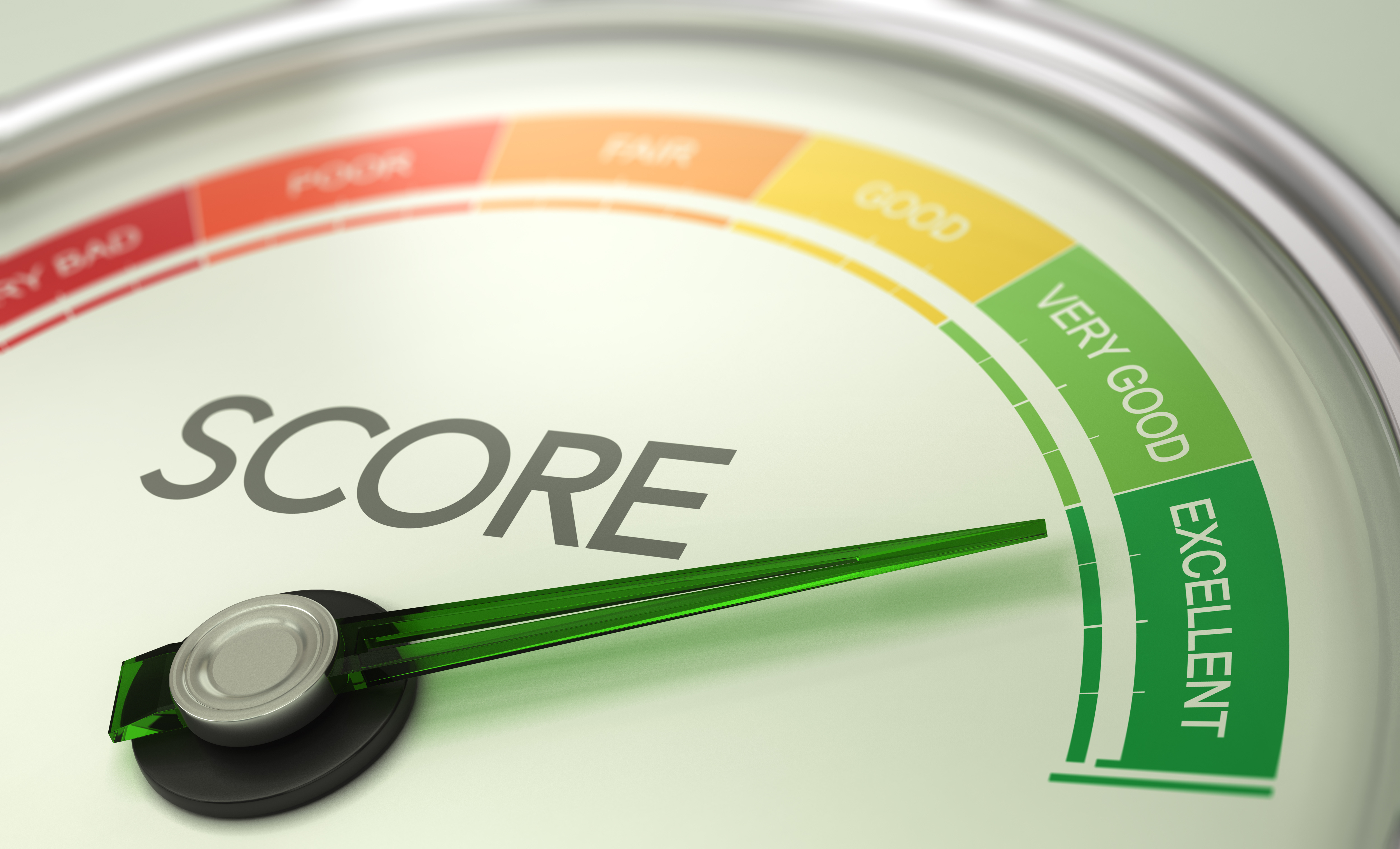The dawn of a new year is an opportunity for new beginnings, new adventures and new goals. If one of your goals for this year is to find and move into the home of your dreams, committing to financial wellness is an important first step to take. January is Financial Wellness Month in the United States, making it a great time to take inventory of your spending and saving habits. Financial wellness isn’t just about having a stable income or a decent savings account; it’s about understanding your monetary situation and making intentional decisions to improve your financial health. With that in mind, here are eight financial wellness tips to help you get started on this important endeavor:
1. Develop a Personal Balance Sheet

Before beginning your financial wellness journey, you should take stock of your overall financial picture—how much money you have and how much you owe. Developing a personal balance sheet involves taking a thorough inventory of your liabilities, assets and expenses. Liabilities encompass credit card balances, mortgage loans, car loans, student loans, etc. Your assets include everything you own that has monetary value, such as savings accounts, investments, property, and retirement funds like your Individual Retirement Account (IRA) and/or 401(k). Expenses are anything you spend money on, including your car payment, rent, gym membership, cell phone bill, utilities and groceries. When tracking your expenses, aim to be as detailed as possible about both your monthly and annual spending.
Taking time to compile this balance sheet will help you determine your net worth—what you own versus what you owe. This is a critical step in evaluating whether you are financially ready to embark on buying a home. You may find areas where you can reduce debt or reallocate funds to strengthen your financial position before taking on a mortgage.
2. Craft a Maintainable Budget

Once you’ve gotten a handle on your personal balance sheet, keeping your spending in check will be important for you as you prepare to find and finance your dream home. Putting a budget down in writing can help you decide how much you can ultimately afford to pay for a mortgage each month, identify expenses you can reduce or eliminate, and set firm (and realistic) savings goals, so you’re able to bring a good down payment to the table when you’re shopping for loans.
Budgeting also plays an important role in improving your credit score, which is essential when applying for a mortgage. By keeping track of your bills and ensuring that they’re paid on time, you’ll demonstrate financial responsibility, which could lead to more favorable loan terms.
3. Be Prepared for an Emergency

Unexpected financial setbacks can disrupt even the best-laid plans, which is why building up an “emergency fund” is an important aspect of financial wellness. No one wants to have to deal with misfortune of any kind, but by setting aside cash for emergencies such as car repairs, medical bills, or job loss, you can navigate life’s out-of-the-blue challenges without disrupting your budget or long-term savings goals. How much should you save for an emergency? The well-respected global investment management firm T. Rowe Price suggests starting with at least $1,000, then gradually growing the fund to cover three to six months of living expenses. If your income is irregular, like with freelance or commission-based work, you might consider aiming to save enough to cover six months or more. This will provide you with greater peace of mind and financial flexibility as you move forward with your homebuying journey.
4. Streamline Your Subscriptions

In today’s digital age, it’s easy to accumulate a significant number of subscriptions to various services—streaming platforms, gym memberships, magazine subscriptions, meal delivery services and more. If you’re uncertain which subscriptions you currently have, you’re not alone. In fact, approximately 28% of consumers are unaware of exactly what they’re subscribed to, according to a survey done by SUBTA.
To improve your financial wellness, take the time to review your monthly statements and identify any recurring charges. Subscription management apps, such as PocketGuard or Trubill, can be a good way to determine if you’re able to streamline the number of services you’re paying for. Or, if you prefer, you can simply conduct a comprehensive review the old fashioned way—by examining your various statements for recurring charges and determining their value to you. This is a seemingly small but impactful step toward gaining better control over your finances.
5. Reduce or Consolidate your Debt

Debt is a significant burden for many people, especially when they are trying to buy a home. Having outstanding debt can affect your credit score and the amount of mortgage you can afford. If you have multiple debts, it can also be difficult to manage payments effectively. The good news is that there are strategies you can use to reduce or consolidate your debt.
Depending on the size and scope of your debt, this can sometimes seem like a daunting task. Debt consolidation is an increasingly popular way to more effectively manage your outstanding loans and balances. Be mindful of the companies you might think about using to relieve your debt however, as there are predatory lenders who might end up costing more than you bargained for.
Another option is to aggressively pay down high-interest debt, such as credit card balances, before taking on a mortgage. This will help improve your credit score and reduce your debt-to-income ratio, two factors that lenders will consider when determining whether you qualify for a home loan.
6. Utilize Automatic Payments

Automating your contributions is one of the most effective ways to stay on track with your saving and investing goals. By automating your payments for things like bills, savings and investments, you eliminate the risk of missing due dates and incurring late fees. This not only helps you stay organized but also allows you to consistently make progress toward your financial goals.
When it comes to saving for your home, automating contributions to a savings or investment account can help ensure that you stay on track to meet your down payment and closing cost targets. Additionally, automating debt payments can help you avoid late fees and help ensure that your credit score stays healthy as you work toward homeownership.
7. Set up Account Alerts

Overdraft fees can be both annoying and detrimental to your financial wellness. No one wants to pay extra charges for insufficient funds, and many financial institutions offer the option to receive notifications when your account balance is running low. Setting up account alerts will allow you to take action and prevent unwanted fees, which in turn can help you achieve your financial goals.
These alerts can be particularly helpful in preventing overdraft fees, which can quickly erode your savings. By staying aware of your balance and taking action when necessary, you can avoid costly mistakes and protect your financial wellness.
8. Be Cognizant of your Credit Rating

When you begin the mortgage shopping process, your credit score will be one of the important factors that lenders look at when determining what types of loans you are eligible for and how much they’ll allow you to borrow. A strong credit rating can also help you receive a more favorable interest rate.
As you prepare for homeownership, it’s important to regularly check your credit score. Consistently reviewing your rating on a regular basis can help you catch any irregularities, errors or other issues before they become a problem when you’re looking to finance your dream home. Keep an eye on it all the way to the closing table—if something changes before you’ve signed the final paperwork, it could affect your loan approval. Check out this guide for additional credit score management tips.
Summary
Achieving financial wellness is a crucial part of the homebuying process. By following these eight tips—creating a personal balance sheet, crafting a maintainable budget, building an emergency fund, streamlining subscriptions, reducing or consolidating debt, utilizing automatic payments, setting up account alerts and being mindful of your credit rating—you can set yourself up for success this year and beyond.
By taking control of your finances now, you’ll be better prepared to navigate the homebuying process with confidence. Whether you’re aiming for your first home or your forever home, financial wellness will help you make informed decisions and reach your goal of homeownership.
We hope that by employing these financial wellness tips, this will be the year you make the home of your dreams a reality!
Looking for a new home?
Researching neighborhoods and browsing floor plans can be time consuming. But we have a shortcut! Our local New Home Specialists will take your wish list and narrow down your options to save you time and energy.





